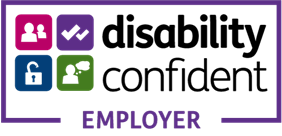What do we look for in our colleagues?

Our People
At Delta, we are proud of our people.
Our team of inspiring individuals possess a curiosity that drives them to ask questions and share their expertise and knowledge to inspire students and colleagues.
They understand what matters to others and are always ready to listen and offer help. With a can-do attitude, they take ownership and get things done, finding creative solutions to overcome obstacles.
Our team is passionate about education, showing their care for students and colleagues every day through their dedication and energy. They love what they do and are committed to shaping the future through education.
How we find the best people
At Delta, we take recruitment and selection seriously and seek to identify the best qualities in potential candidates. Our selection process may involve various methods to explore your skills, experience, and values:
- We value understanding your professional journey and your motivations for joining our team. That’s why we’ll spend time discussing your career accomplishments, your interest in working with us, and the kind of environments, teams, and challenges that bring out the best in you.
- We will ask you questions that are specifically related to the competencies and criteria required for the job you have applied for. This helps us to assess your skills and experience in a structured way, ensuring that we select the most suitable candidate for the role.
- Exploring past experiences is a common approach in competency-based interviews. This helps us understand your approach to problem-solving, decision-making, and how you handle challenges in the workplace. By asking for specific examples, we can see how you apply your skills and experience in real-life situations, and assess how you might approach similar scenarios in the future.
- We want to get a sense of your overall experiences and how you’ve demonstrated certain qualities or skills in various settings, whether it’s in your professional career or personal life. We believe that experiences outside of work can also be valuable and relevant to the role you’re applying for.
- Practical tasks are often used in the recruitment processes to assess a candidate’s ability to perform specific job-related tasks. For example, if you are applying for a teaching role, you may be asked to deliver a short lesson. If you are applying for a leadership position, you may be asked to participate in a role-play exercise or to prepare and present a strategic plan. These practical tasks allow employers to see how candidates perform in real-life situations and how they apply their knowledge and skills to solve problems or achieve goals.

We are proud to be a Disability Confident employer and guarantee an interview to anyone disclosing a disability whose application meets the minimum criteria for the post. However, it is important to note that if we receive a high volume of applications, we may limit the numbers of interviews offered to both disabled and non-disabled people.